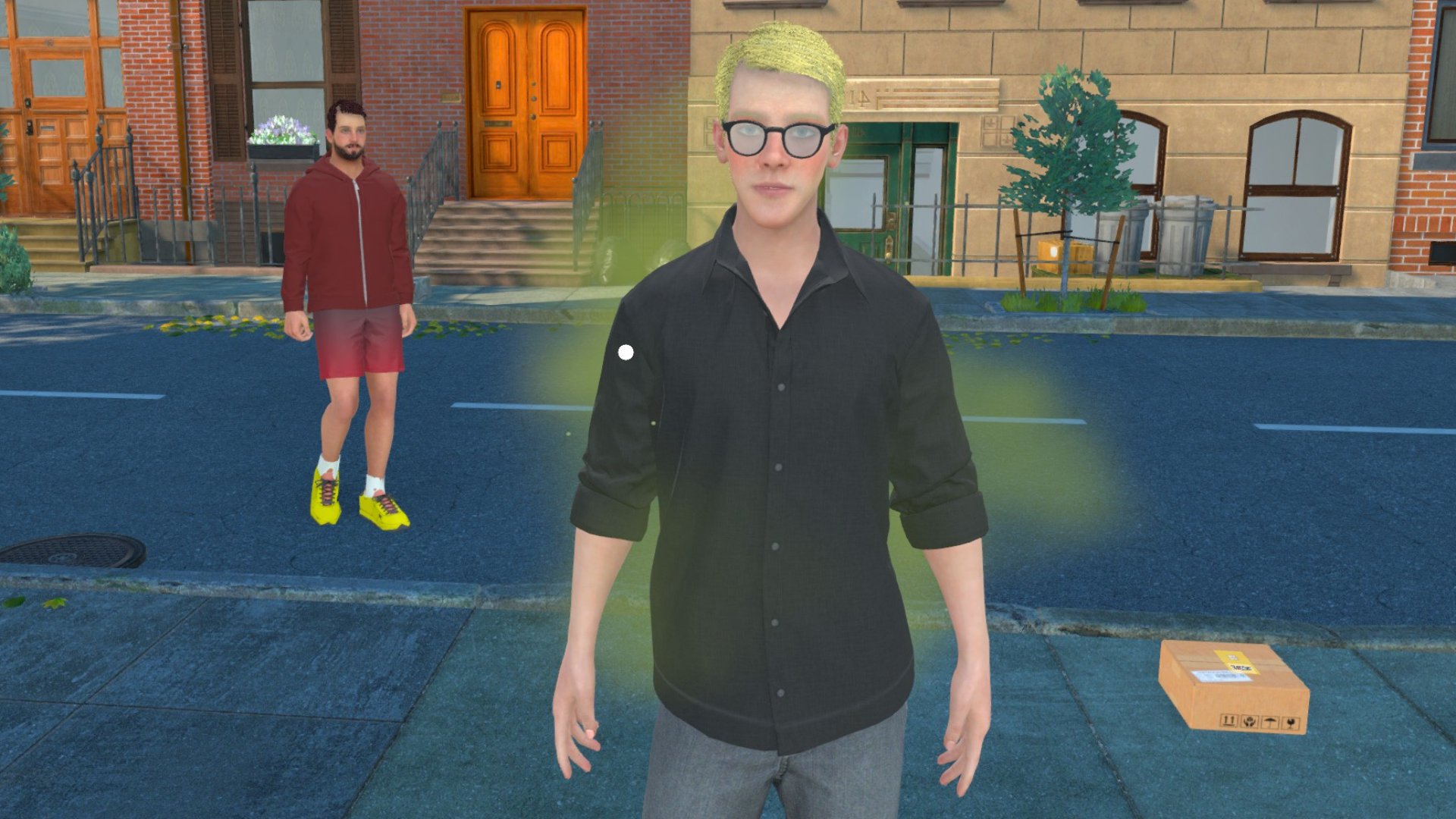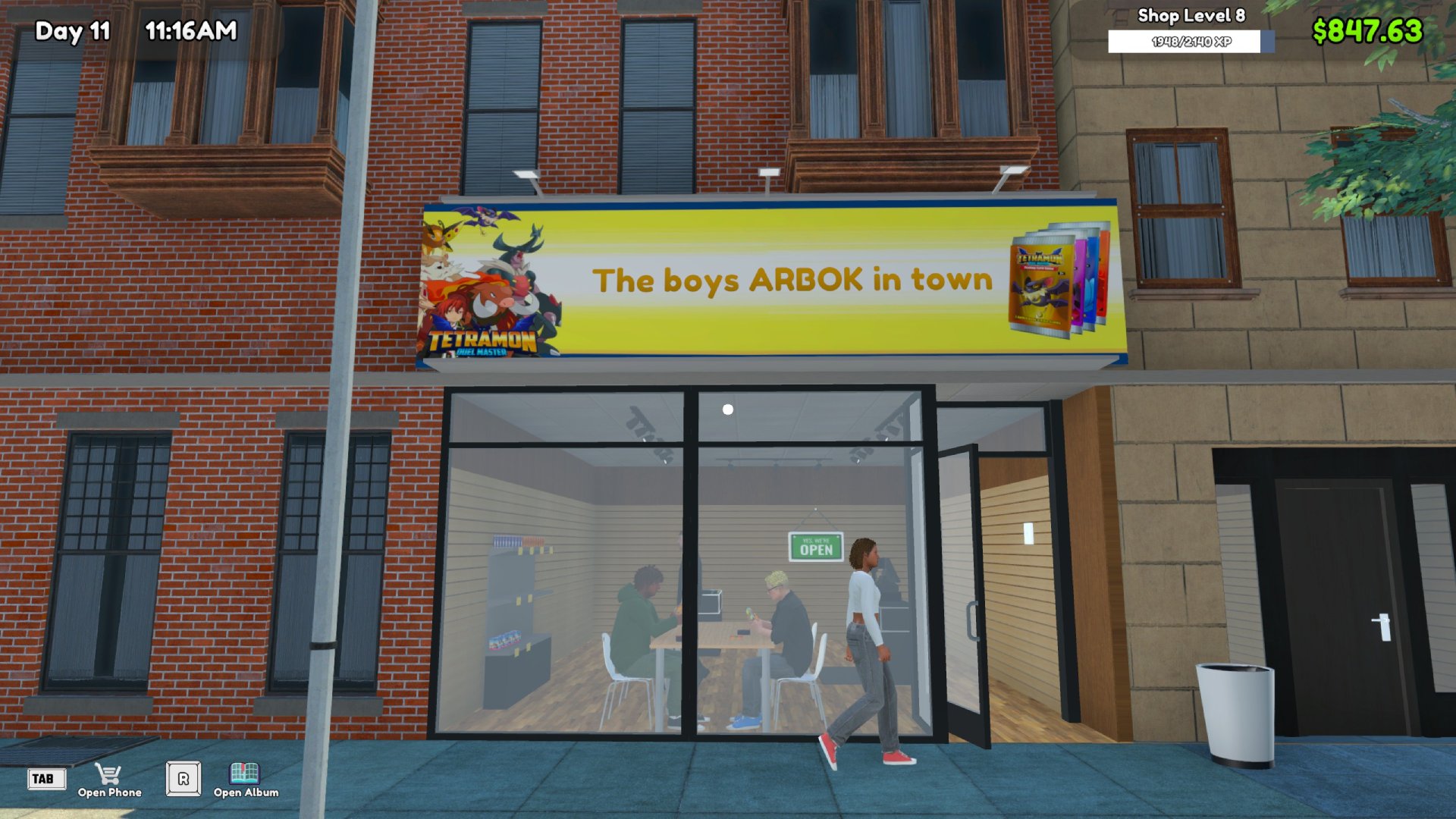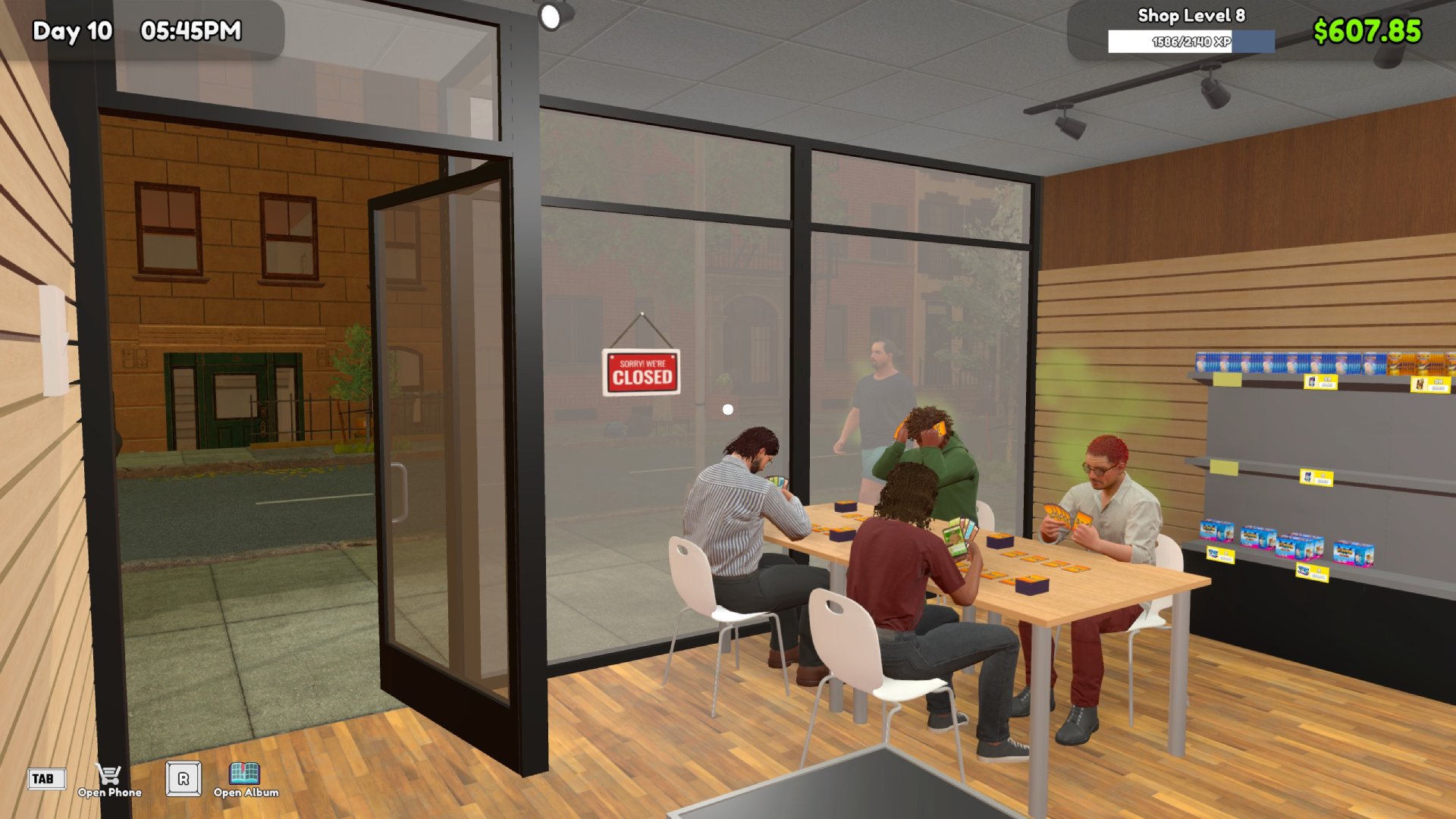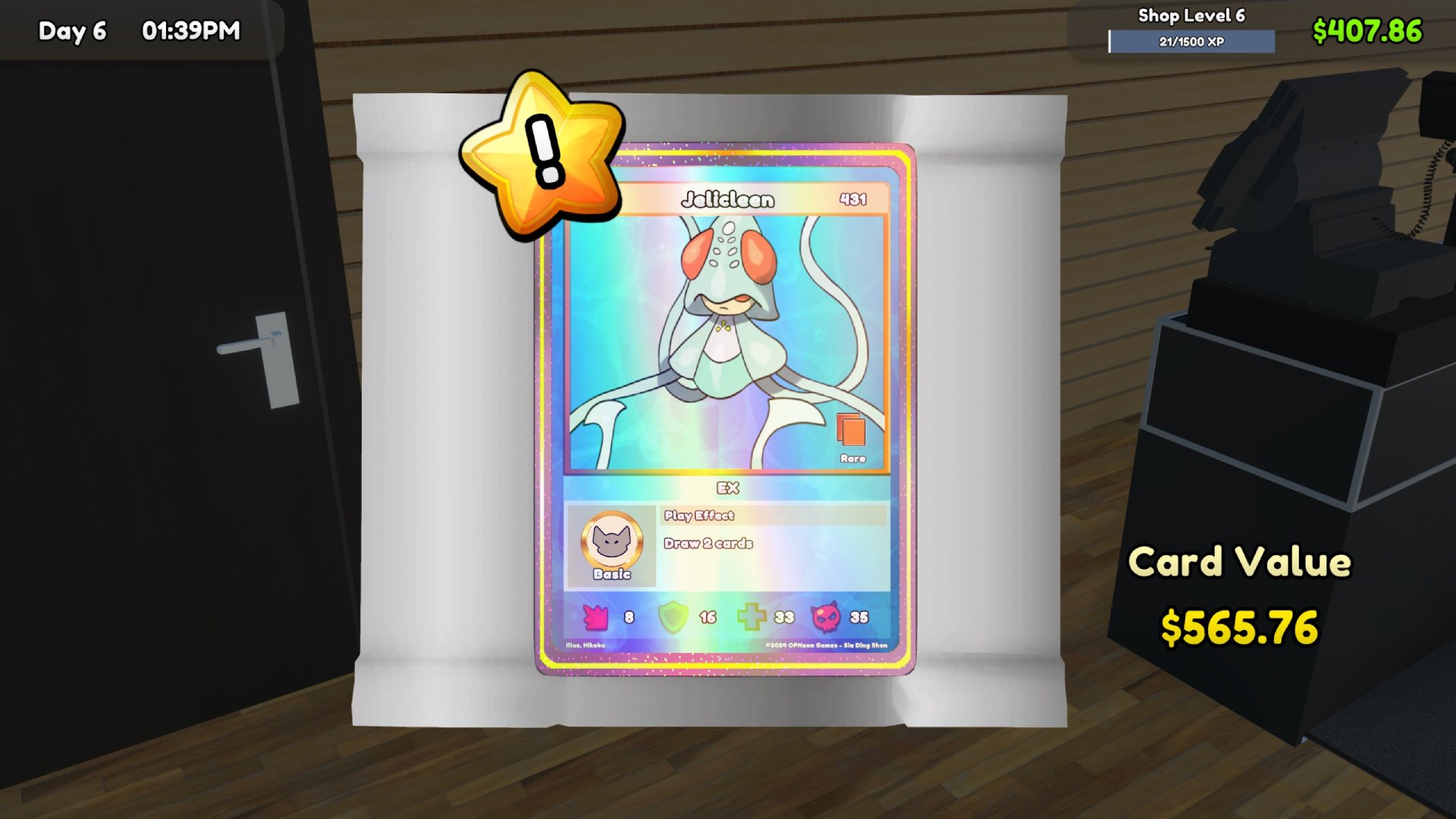TCG Card Shop Simulator may just be one of the best games I've played all year, despite having to fight off hordes of stinky customers
Something smells off.

Thanks to a love of bugs and your typical playground peer pressure, I've been collecting Pokemon TCG since I was six years old. But over the last 18 years, my love for the card game has always just been restricted to a hobby—until I came across TCG Card Shop Simulator.
My first day on the job at my new TCG store, "The Boys ARBOK in Town," began like any other. A customer with a stench so vile he was followed by a green mist walked into my shop and hung around long enough to scare off all other potential clientele. I initially thought that the hardest part of running a shop would be mastering competitive pricing, but I was wrong. Instead of fighting the market, I began the still-ongoing war on stinky shopgoers.
To be fair, stinky shoppers are mentioned on the game's Steam page, and there is a warning about what will happen if you don't try to combat the problem. If even one stinky person makes their way into the store, not only will they disincentivise other customers from buying stock, but it also seems to just attract more equally smelly people. For the first few levels, all I could do was watch in horror as my shop became infected with the olfactory equivalent of scarlet rot. But after selling enough product and gathering some XP I got to level 11 and unlocked an air freshener, and let me tell you, this was a game changer.
The tides of war changed that day as I powered up my giant air freshener for the first time. After filling it with some tropical cleanser, the machine would periodically spray stinky shoppers with a nice scent, stripping them of their clouds of green stench. Sometimes, I'd have to move the machine around the shop to clean pesky shoppers who would run away from the cleanser's mist, but I always got them in the end.
Since getting the air freshener, morale in The Boys ARBOK in Town is at an all-time high, and new customers are no longer scared off by swarms of fly-infested, smelly shoppers. Everyone wins.
A calculated risk

There's more to TCG Card Shop Simulator than just some unexpected smells. Despite still being in early access, there are plenty of tasks and features available to keep you very busy. My first playthrough lasted four hours as I hyper-fixated on keeping shelves stocked, renovating the store, and paying bills.
It took a couple of attempts to figure out inventory costs. I wasn't trying to price gouge my customers, but I also had to pay rent. Luckily, customers are pretty mouthy, so all I had to do was wait for someone to walk in and yell loudly about what they thought of my pricing and tweak it accordingly. One dude just walked in, looked at the pack prices, shook his head, and walked out again without saying a word (a much-needed wake-up call).
Keep up to date with the most important stories and the best deals, as picked by the PC Gamer team.
If you're lost when it comes to pricing products, then a good rule of thumb is to just go for the market price plus 10%: Most shoppers will think it's a fair price, and you'll make a decent profit. But the market does change, so it's important to keep an eye on what your stock is worth. There's a helpful app that tells you which products are increasing or decreasing in price. The one day I didn't check it, I was greeted by a massive queue of customers filling their boots with cards and booster boxes that were now worth more than I was selling them for.
There are also different kinds of packs and boxes to unlock as you level your shop up, so at the beginning, you won't have a lot of stock to show off. But as you sell products to customers, gain XP, and climb through the ranks, you'll be able to equip your shop with playing tables, display tables and cabinets, various shelves, and even a DIY station where you can make use of all your bulk cards.

So far, all I have is a couple of display shelves and a glass display cabinet where I can sell all the rare individual cards I've scored. It's risky taking packs off your shelves to open them in hopes of finding expensive cards you can individually sell, but it's also my favourite part of the game.
I've opened over 100 packs over the last couple of days, and that's with me exercising restraint. I'd much rather close the shop down and open every single pack and box available—but that would not be good for business, so I have limited myself to a couple of packs when the glass display table is low on cards.
Most of the cards I've packed aren't anything special, although the artstyle and monsters are very cute, but every so often I snag something fantastic. There are holo and shiny cards, which are worth anything from $1 to $10. But there are also cards worth hundreds of dollars, and I even managed to get a hold of a rare Jelicleen that costs $565.76.

Despite what they may teach you in business school this card is far too important to just sell. So I've displayed it in a locked glass cabinet for no one to buy, because it's cool and I like to look at it.
TCG Card Shop Simulator is a welcome surprise. I wasn't expecting much from this game, but after growing my small store for a few days now I can safely say that it's one of the most entertaining games I've played all year. I really didn't know that I needed to manage a make-believe TCG store in my spare time, but now that I do I'm not sure what I would do without it.

Elie is a news writer with an unhealthy love of horror games—even though their greatest fear is being chased. When they're not screaming or hiding, there's a good chance you'll find them testing their metal in metroidvanias or just admiring their Pokemon TCG collection. Elie has previously worked at TechRadar Gaming as a staff writer and studied at JOMEC in International Journalism and Documentaries – spending their free time filming short docs about Smash Bros. or any indie game that crossed their path.

